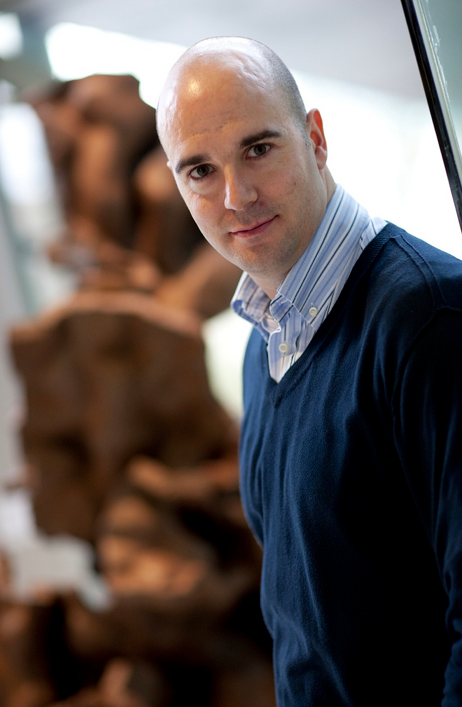Luis Hueso, new nanoGUNE Nanodevices Group Leader
The European Research Council (ERC) has awarded a Starting Grant to the SPINTROS proposal presented by Luis Hueso. The grant has a budget of 1.3 M€ for a 5 year work program. SPINTROS is the acronym for SPIN TRansport in Organic Semiconductors. The core objective of this project is to understand and control spin transport in organic semiconductors.

Spintronics is an area of electronics that aims to exploit the spin of the electron. Although it is one of the areas selected to play a role in the post-CMOS electronics (from 2020 onwards), spintronics still has to prove its full potential in many fields. Particularly important is the long distance spin transport and manipulation. For future spintronics devices to be successfully integrated within the current technological miniaturization trends, we must be able to transport and control spins for distances in excess of 100 nm.
Organic semiconductors (OS), already present in some niche electronic applications, such as light emitting diodes, can play an important role in the development of spintronics as an alternative to conventional electronics. OS have very small spin-orbit and hyperfine interactions, which lead to very long spin coherence times and make them ideal for spin transport. However, the basic mechanisms of spin injection, transport and manipulation in OS are still obscure, thus impeding further advances in the field.
This project will create new basic knowledge on spin transport in nanostructures, going well beyond the current understanding thanks to a new global multidisciplinary method. Concurrently, it will open new routes for the realization of post-CMOS electronic devices. In order to understand and control spin transport in organic semiconductors, which in the long-term should also lead to the use of organic spintronics in commercial electronic devices, a multidisciplinary approach, merging materials science, electronics and physics will be used.
Luis Hueso earned his PhD from the Universidad de Santiago de Compostela for his research on strongly correlated magnetic oxides. From 2002 to 2005 he was Marie Curie Fellow at the University of Cambridge, where he developed a project on spin transport in carbon nanotubes. In 2006 he moved to the Consiglio Nazionale delle Ricerche (Italy) and in 2007 he took a Lecturer position at the University of Leeds where his interests where related with electronic transport in reduced dimensions in general and carbon spintronics in particular. Since 2008 Luis Hueso continues his scientific research activities as an Ikerbasque Research Professor (Basque Foundation for Science) and Nanodevices group leader at CIC nanoGUNE in San Sebastian, Spain.
ERC Starting Independent Researcher Grants (ERC Starting Grants) aim to support up-and-coming research leaders to establish or consolidate their independent research group. Being a very competitive program, proposals are assessed only in terms of their scientific excellence, and less than 10% of the applications were accepted in the 2009 call.
